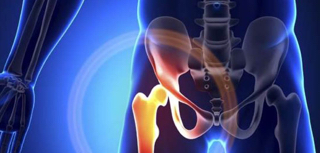Written by Physio Anglea Flack (B.Physio; B.Ex.Sc.)
Waddling Gait… Is it due to hip pain?
What is Gluteal Tendinopathy:
 Gluteal tendinopathy is a common condition that causes pain in the hip and buttock muscle. Your Gluteal tendon is the tough fibres that connect your Gluteal muscle to your hip bone. Your Gluteal muscle is one of the strongest muscles in the body. It is responsible for movement of the hip and thigh.
Gluteal tendinopathy is a common condition that causes pain in the hip and buttock muscle. Your Gluteal tendon is the tough fibres that connect your Gluteal muscle to your hip bone. Your Gluteal muscle is one of the strongest muscles in the body. It is responsible for movement of the hip and thigh.
A tendinopathy refers to a tendon that isn’t coping with the load it is being placed under. This excessive load will cause the tendon to break down and become thick and swollen. There are many causes for why a tendon becomes overloaded. They can be a result of gradual wear and tear to the tendon from overuse, doing the same motion over and over in your job, sport, daily activities or simply ageing. A tendinopathy in earlier stages will often feel stiff initially during exercise and warm up during exercise and worsens again afterwards. As the condition progresses often pain increases with exercise. However it could also be when lying on the affected side or even the unaffected side (because the symptomatic limb can rest in a position of flexion and adduction). You may also have more hip pain and stiffness during the night or when you get up of a morning.
The main causes of Gluteal Tendinopathy
Your tendons are designed to withstand high repetitive loading. When a tendon becomes stressed they sustain muscle tears. Gluteal tendinopathy can be due to poor hip and Gluteal muscle control that leads to overloading of the Gluteal tendon causing pain and hip-pelvis instability.
What do we assess at Gold Coast Physio & Sports Health if we believe you have Gluteal tendinopathy:
To determine if you have Gluteal tendinopathy a full assessment will be conducted. This will initially include a subjective history of your condition. This will include:
- Symptoms: what are they are how long have they been happening
- Previous history
- Current training program and training goals
- Future events/competitions you would like to compete in
- Current foot wear and orthotics
After a subjective assessment we will then conduct an objective assessment which may contain:
- Walking/running analysis
- Determine hip, knee and ankle range of movement
- Strength testing as appropriate
- Palpate the area to determine which structures are painful/swollen
- Other test to differentiate from other sources
What treatment will you receive from Gold Coast Physio & Sports Health:
At Gold Coast Physio & Sports Health we aim to treat not only the pain and symptoms but also the cause/s. Additionally we aim to allow the client to continue training and work towards goals and competition depending upon the severity of the tendon. Initial treatment may include:
- Soft tissue therapy
- Joint mobilisation techniques
- Stretching exercises
- Exercise therapy – a structured progressive strength training program to condition the tendon
- Changing and modifying training to allow you to continue training as much as possible whilst allowing healing of the tendon.
Some tendinopathies can be quite difficult to treat especially chronic problems, which are common as symptoms can occur for several months before they impact on training and cause pain enough to seek medical help. Early intervention is the key to keeping yourself on track.
To make an appointment with our team please call 07 5500 6470
We are conveniently located at a number of Gold Coast locations and you can visit our team at Burleigh Physio, Runaway Bay Physio, Labrador Physio, and Southport Physio clinics
